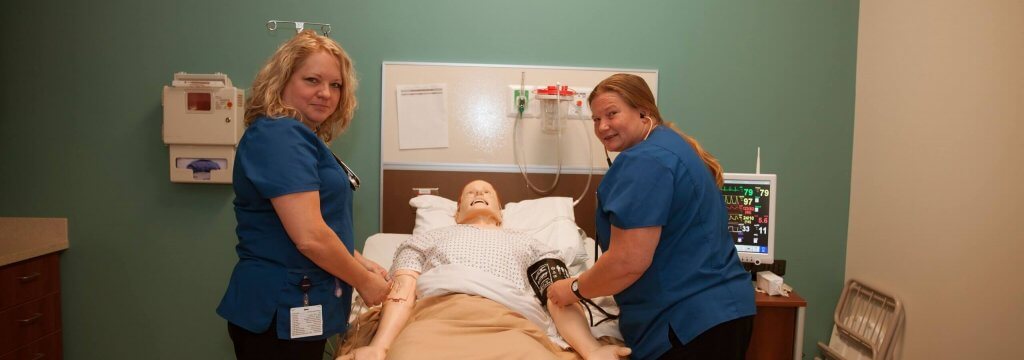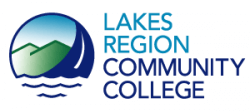Building Operator Certification
Lakes Region Community College is an Approved Provider for the nationally accredited Building Operator Certification (BOC) program. We offer both Level I and Level II BOC trainings.
These trainings are aimed at professionals managing large commercial, institutional and industrial facilities. BOC students learn how to reduce building energy costs through energy efficient operations and maintenance. Through both coursework and hands-on assignments, students gain knowledge and skills in smart energy management. Qualifying New Hampshire students may be eligible for incentives to reduce the cost of BOC tuition.
BOC Level I training provides an overview of critical building systems. The following set of classes are the 8-day BOC Level I training program at LRCC – course # NCWK940L. Each class is taught in one day, except for the two-day HVAC class. Eligible students who successfully complete this entire program earn the nationally-recognized BOC Level I “Training Certificate of Completion” credential. Candidates are then eligible to take the BOC I certification exam, which is offered separately.
Prerequisites: Facility management or energy professional with access to a non-residential building for assignments, or permission of instructor. The BOC credential also has an experience requirement.
Building Operations & Systems (1 day)
This class covers the operations of building systems in respect to the overall building performance and interaction of all systems that service a building. Each building system will be covered individually as well as a whole. This class builds the foundation for subsequent classes.
Building Energy Conservation (1 day)
In this class students will develop an understanding in how buildings consume energy, and how to compare building performance. Students will learn methods of collecting energy consumption data, analyzing energy data, and recognizing potential areas of conserving energy via data collection and building comparisons. Students will work with utility rate structures, utility billing practices, and understanding utility incentive programs.
HVAC Controls & Operation (2 days)
In this class students will be introduced to the operation of heating, ventilation and air conditioning (HVAC) systems in commercial buildings. Boilers, chillers, air handling systems, pumps, fuel characteristics and control systems will be covered. Operational improvements and preventative maintenance techniques are emphasized throughout the class as well as an introduction to building automation control systems.
Lighting Theory & Efficiency (1 day)
The theory of lighting and techniques to achieve efficient lighting are covered in this class. The principles of lighting design are introduced as well as preventative maintenance techniques to maintain energy efficient lighting. Students will conduct a lighting assessment in their designated building.
Indoor Air Quality Theory & Techniques (1 day)
This class outlines preventative strategies for Indoor Air Quality (IAQ) in commercial and institutional buildings. Students will learn the different techniques and equipment used to measure for IAQ as well as how building systems interact with IAQ. Students will discuss control strategies for a preventative IAQ program.
Electrical Systems & Distribution (1 day)
In this class the student will learn the different electrical systems found in commercial and institutional buildings as well as various distribution methods. The class includes a hands-on electrical mapping project. Successful students will be able to understand and map electrical systems in existing buildings.
Energy Management Planning (1 day)
This class will be a culmination of the previous classes in the BOC I program. Sustainable building operations, maintenance and planning will be reviewed. As a capstone class, students will prepare a cost-effective operations and maintenance energy management presentation for their designated facility.
BOC Level II features advanced topics in efficient commercial facilities energy management, maintenance and operations. It is aimed at graduates of the BOC Level I program. The 7-day BOC II program integrates instruction with practical assignments to enable participants to produce a customized Building Systems Manual by the end of course. As with BOC I, eligible students who successfully complete this BOC II program earn the nationally-recognized BOC Level II “Training Certificate of Completion.” There is no BOC II exam. LRCC BOC II course # NCWK945L.
Building Operational Improvement with Scoping Tools, Part I
Gain skills in using scoping tools to improve building operations, increase energy efficiency, and enhance occupant comfort. (BOC 2001 Handbook provided)
Troubleshooting and Preventive Maintenance
Learn how to set up and operate a preventative maintenance program to keep buildings in peak operating condition, along with effective troubleshooting methods. (BOC 2010 Handbook)
Optimizing HVAC Systems with Controls
Learn how to more effectively operate HVAC systems with modern controls and proper sequencing of operations. (BOC 2002 Handbook)
Building Operational Improvement with Scoping Tools, Part 2
Gain additional insight how scoping tools can be used at your facility, and start developing a framework for a customized facility Systems Manual.
Efficient Water Use in Buildings
Analyze water use and water heating in your facility, and develop a water conservation plan that will also save energy. (BOC 2004 Handbook)
Building Commissioning and Demand Reduction
Get practical information for implementing building commissioning and demand reduction programs to reduce energy costs and increase building performance at your facility. (BOC 2003 Handbook)
Building Automation and Project Presentations
After a session on enhanced automation, you will present a component of your facility Systems Manual to the class. It is an excellent opportunity to show what you have learned over the course.


